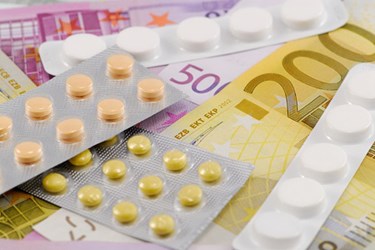BMS Launches Anti-PD-1 Opdivo With $143K Price Tag In Japan

Bristol-Myers Squibb and partner Ono Pharmaceuticals’ anti-PD-1 cancer drug Opdivo was commercially launched in Japan this month at an annual price of $143,000 per patient, reports The Wall Street Journal.
Opdivo is an anti- PD-1 (programmed death-1) cancer drug that recruits the body’s own immune system to fight cancer and other tumors. The drug was released as an intravenous infusion indicated for the treatment of unresectable melanoma.
The news of Opdivo’s price tag was greeted with a lackluster response reminiscent of Gilead drug Sovaldi’s reception. Sovaldi, a blockbuster drug for hepatitis C, is currently priced at over $80,000 per treatment course per patient. Though a specialty drug, Sovaldi’s price tag attracted criticism from patients and physicians alike, as well as lawmakers. Indeed, in July Gilead’s execs were asked by two U.S. senators to defend Sovaldi’s ‘exorbitant’ price out of concern for federal healthcare programs.
Opdivo’s price may similarly be questioned in the following weeks, as its Japan price tag is expected to be matched in the U.S. and Europe soon. WSJ reports that J. Leonard Lichtenfeld, deputy chief medical officer for the American Cancer Society, commented that sky-high prices for new effective drugs have become a major concern for patients. However, anti-PD-1 drugs hold the potential for breakthrough for many patients, as a lot of people showed significant and long term responses to the treatments.
This is precisely the point drug makers point to in their defense. Early last month, Pharmaceutical Research and Manufacturers of America (PhRMA) president and CEO John Castellani wrote in a CNN opinion piece that hepatitis drugs like Sovaldi can actually save money in the long run. Castellani says, “Although critics say the price of a promising new hepatitis C drug raises the cost of insurance, research from Milliman in 2009 projected that, without a cure for hepatitis C, annual U.S. medical costs associated with the disease will nearly triple over 20 years — from $30 billion to $85 billion — indicating that curing the disease can help reduce future medical costs.”
Last week, another much anticipated anti-PD-1 drug, Merck’s pembrolizumab, was approved in the U.S. According to various sources, including the WSJ, the drug will, at the very least, cost in the ballpark of $12,500 a month, or $150,000 a year, suggesting that this drug will be following in the footsteps of drugs like Sovaldi and Opdivo and, as such, is reflecting the trend of a new class of breakthrough drugs with hefty price tags.
